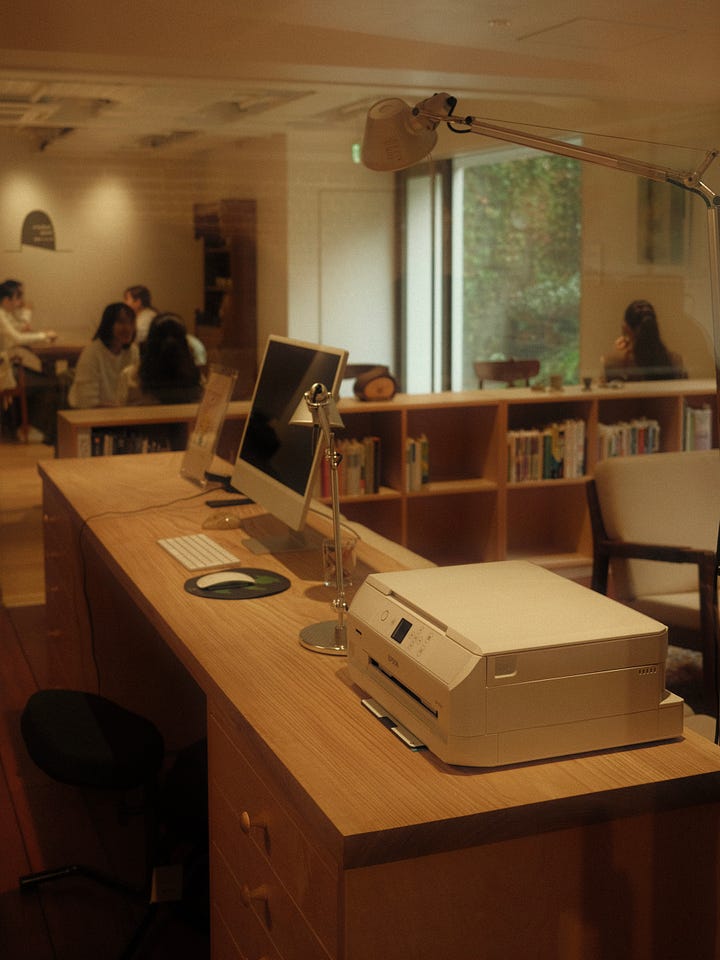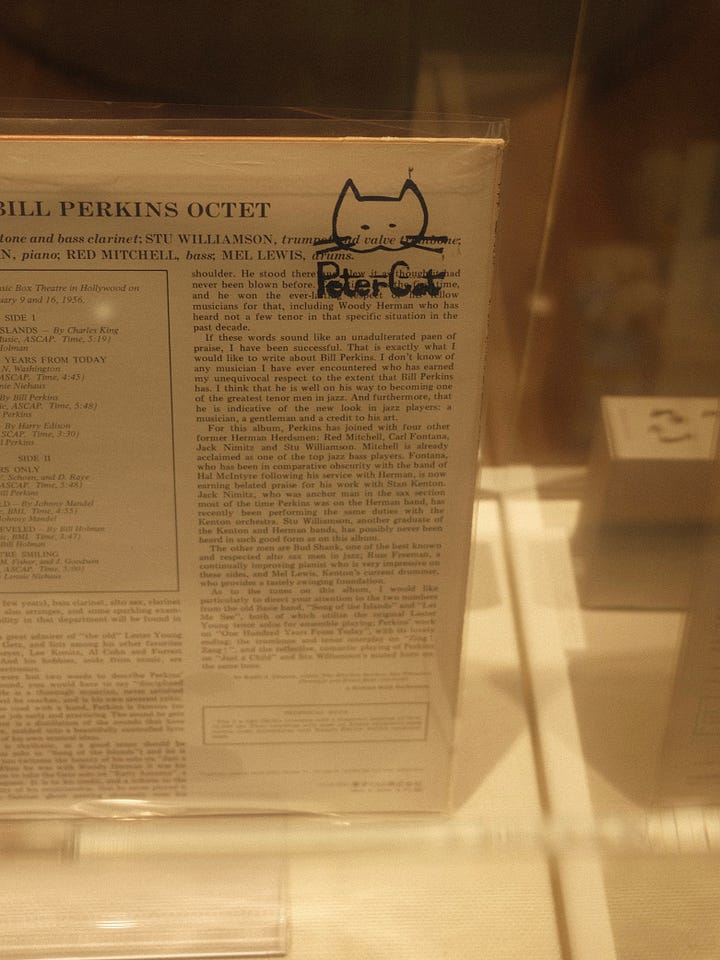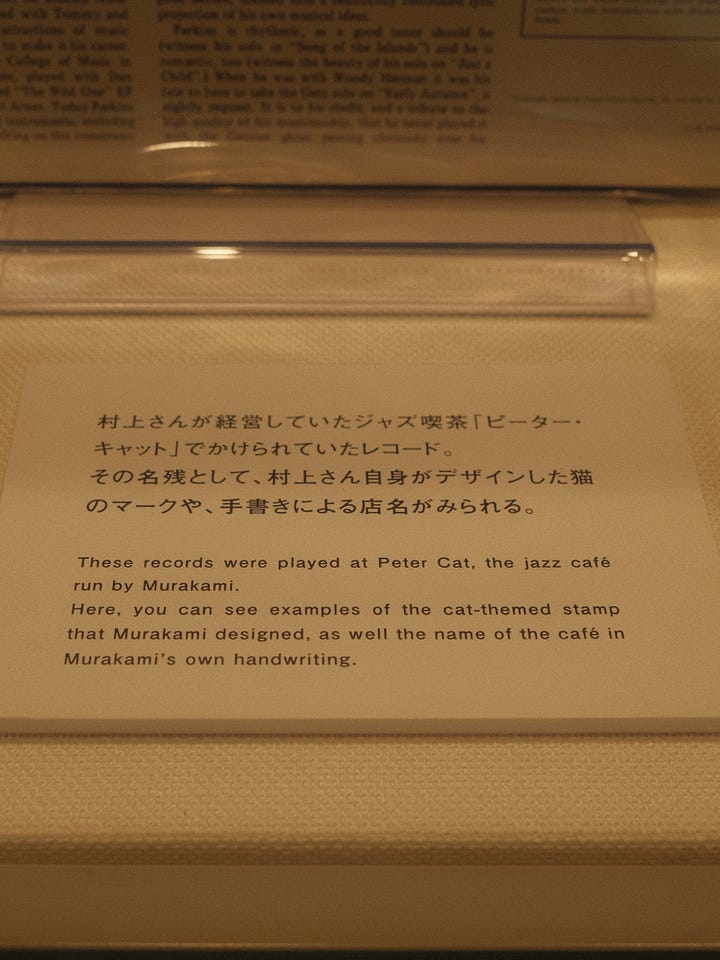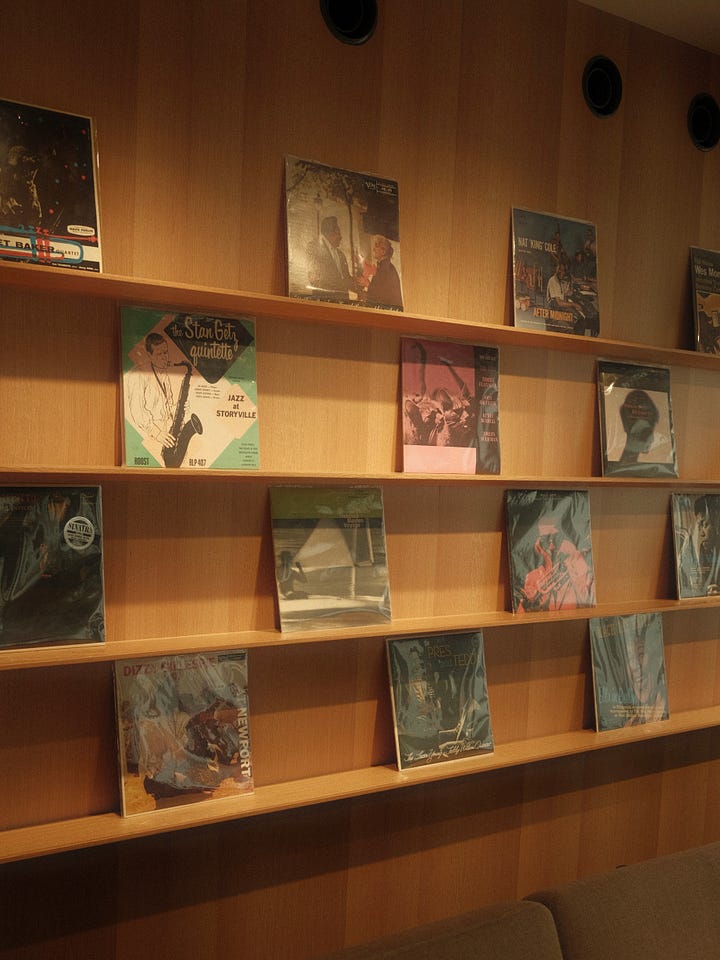Murakami and Jazz: Peter Cat and The Haruki Murakami Library
Two Murakami sites in Tokyo that depict his relationship with jazz
I’ve liked jazz for as long as I can remember, but I have to credit my recent deep obsession with the genre to two things: the music of Ryo Fukui and the writing of Haruki Murakami.
I won’t go too deep into it here, as that would turn this into a very different and exhausting article, but Murakami has had an immeasurable influence not just on my reading and listening habits but also on my very nature and sensibility.
But let’s focus on what I set out to write. It was an absolute pleasure to visit two significant Haruki Murakami sites in Tokyo recently: the Haruki Murakami Library and the site of Murakami’s former jazz café, Peter Cat.
Peter Cat: Murakami’s Jazz Café
It’s no coincidence that jazz plays an important role in Murakami’s work. If you’ve read any of his novels, you’ve likely picked up on numerous references to jazz icons and venues.
But jazz isn’t just a backdrop in his books, it’s a deeper influence, shaping the way he writes, how his characters act or respond to situations, and how he sets mood and atmosphere. It’s there in the non-linear storytelling, the improvisational feel of his prose, and the way his lonely, solitary characters often yearn for connection.
So it’s no surprise that, many years ago, Murakami started out running a small jazz café on the second floor of a corner building in Sendagaya. I don’t have much firsthand information about what Peter Cat was like, and I prefer to share only my personal experiences. But if you want to learn more, there’s a great article you can read here.
So, what’s it like today? Well, if you visit as I did, you might groan and say, “Is that it?” Because, yes, now it’s really just a random Italian restaurant (I think) on a Tokyo suburban corner.
I’ve visited the site twice over the past few years, spending more time than is probably reasonable staring at it and photographing it, precisely because it’s so unremarkable. To me, it serves as a reminder of humble beginnings and how deep engagement with your passions can lead to success. I’d argue that Murakami wouldn’t be as good a writer, or at least as successful, without jazz and the role it played in his life.
The Haruki Murakami Library
If Peter Cat represents Murakami’s past, Tokyo is also home to a site that pays tribute to where he is now, and the legacy he will certainly leave behind.
The Haruki Murakami Library, located on the Waseda University campus in Shinjuku, is free to visit and filled with materials that Murakami himself has accumulated and donated. It features a stunning atrium lined with books, a museum space, and even a café. Parts of it genuinely feel like you’ve stepped into one of Murakami’s magical realist worlds. In particular, it reminded me of what the library from Kafka on the Shore might have been like.




What struck me most was just how much jazz permeates the space. There’s a recreation of his personal listening room, where you can sit and hear records that were once played at Peter Cat, some still bearing the café’s stamp. There’s a glassed-off replica of his study, adorned with jazz artwork. There are even copies of his books about jazz, as well as books by other writers on the subject.
It’s hard to put into words what it felt like to be in that space. Overwhelming is one way to describe it. There’s so much unique material that it felt like a gift just to be there, standing in the same room. One entire room is filled with Murakami’s books translated into seemingly every language imaginable and it took every ounce of my strength not to make off with an armful of them.
These two sites, one new and flourishing, the other existing only as a shell, are vital for understanding Haruki Murakami and his relationship with jazz. The music was there for him when he had nothing. And now, when he has nothing left to prove, it remains just as much a part of him.
Thanks for reading! I’ve got another Haruki Murakami piece in the works, this one covering his 1997 book, ‘Portrait in Jazz’ which I picked up in Japan and has never been released in English. I hope to have that one ready soon. For now, I’ll leave you now with an album recommendation and it’s one that was mentioned in the Undercurrent chat by an awesome subscriber: Clifford Brown and Max Roach by, you guessed it, Clifford Brown and Max Roach.









Murakami is a big favorite of mine (though also have to give a lot of credit to the great Philip Gabriel and his masterful translations to English). You're definitely right - Jazz played a very important part in shaping his writing well beyond the many references to specific artists (like Bill Evans). I do hope someday his Jazz collection is preserved intact though!
I had no idea that Murakami once ran his own jazz cafe, how cool is that. Will have to visit that library next time I'm there.